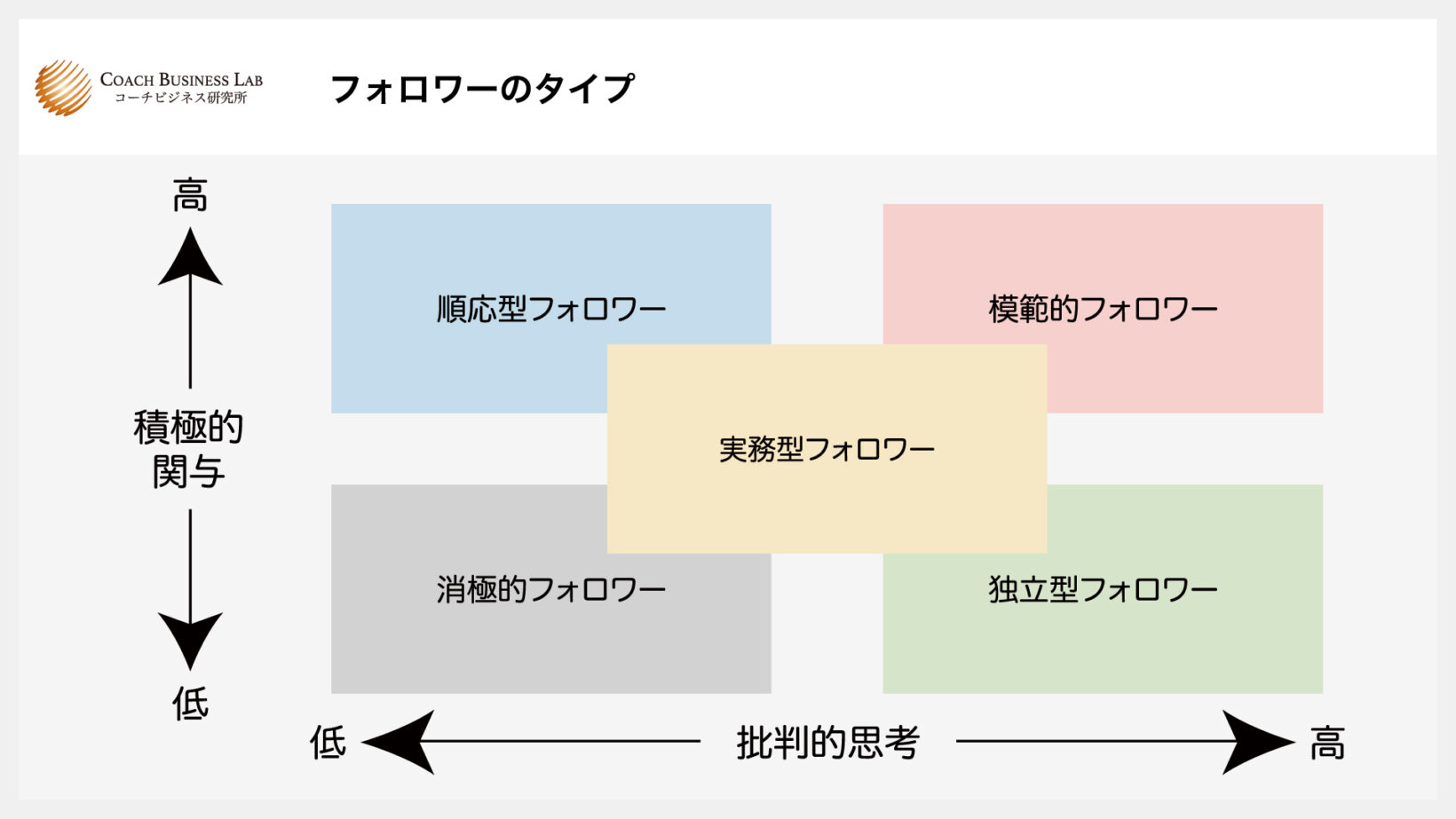
Leadership is so common that it has become a Japanese word, but the English expression “followership” may not be as well known as leadership. Followership, however, is an indispensable component of leadership.
Followership is “the act of encouraging and supporting leaders and other members”. Professor Robert Kelley of Carnegie Mellon University has found that while leaders have 10% to 20% of an organization’s influence, members have 80% to 90%.
And followership is not a one-way street from members to leaders, but is shared by all organizational members, including the leader.
Leaders set the vision and direction of the organization. The follower takes that vision, makes concrete action plans, and performs his or her duties as a party to the plan.
The role of a follower has two axes: “sound critical thinking” and “active involvement in the realization of the vision,” and we have drawn the types of followers by classifying the combination of strengths and weaknesses into five categories.

Exemplary follower
A follower committed to realizing objectives that combines sound criticism with constructive recommendations.
Independent follower
Critical follower who criticizes but is less willing to contribute to the organization.
Adaptive follower
A follower who is obedient but also tends to be a “wait-and-see” or “yes-man” follower.
Negative follower
A follower who does not demonstrate the value of his/her presence in the organization.
Practical follower
A follower who is balanced but stays within the scope of his/her own work.
Whether or not the Japanese translation of the term “exemplary follower” conveys the nuances of the original, it is clear that the ideal follower is an ideal follower. We have explained that leaders and followers are interrelated. If most of the organization’s members are exemplary followers, the organization’s performance will certainly improve.
True leadership is about both parties creating the ideal organizational environment through close interactions. We can see from Kelly’s research that the significance of coaching is well conveyed.
(The above English translation is for a reference purpose only and a re-translation of the Japanese into English. Accordingly, please refer to the original text as appropriate.)
コーチング情報局を運営する株式会社コーチビジネス研究所では、企業を対象としたコーチング研修、ビジネスパーソンを対象としたビジネスコーチング、個人の方を対象としたライフコーチングを提供しております。その他、コーチングを学びたい方のためのコーチングスクールの運営、経営者やビジネスリーダー向けにセミナーを開催しています。興味や関心がございましたら、お気軽にご相談・お問い合わせください。
This article was written in Japanese and converted into English using a translation tool. We hope you will forgive us for any inadequacies.
Coach Business Laboratory, Inc., which operates the Coaching Information Bureau, provides coaching training for companies, business coaching for business people, and life coaching for individuals. In addition, we operate a coaching school for those who want to learn coaching and hold seminars for executives and business leaders. If you are interested or have any questions, please feel free to contact us for further information and consultation.


